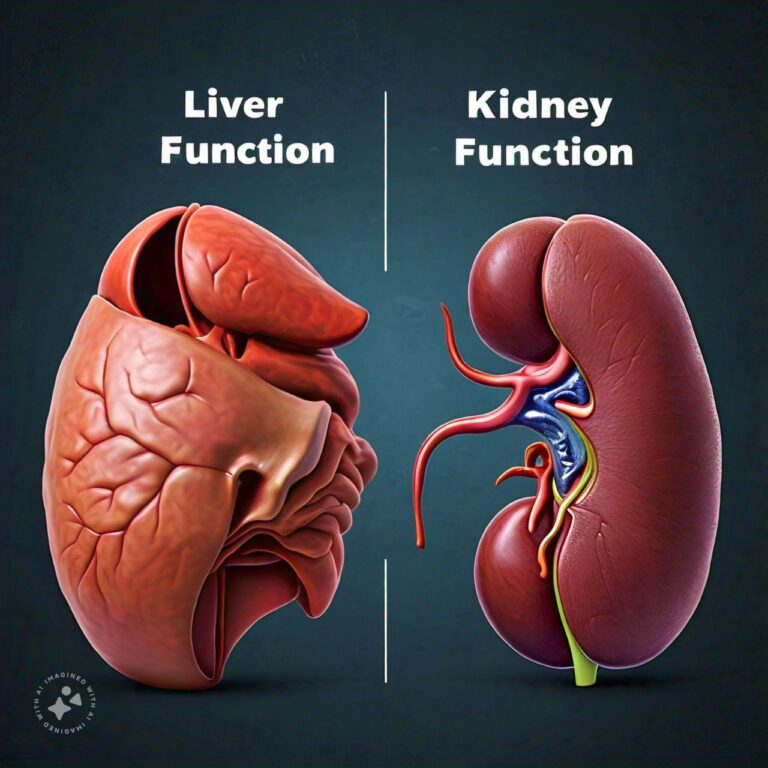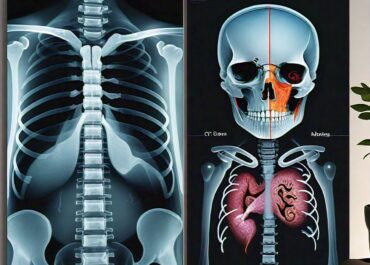
Differences Between Liver and Kidney Function
The liver and kidneys are two of the most vital organs in the human body, each performing essential roles in maintaining overall health and bodily functions. Both organs are involved in the filtration and detoxification of waste from the body, but they operate in different ways and focus on different types of waste. The liver is primarily responsible for processing nutrients from the digestive system, detoxifying harmful substances, producing bile for fat digestion, and metabolizing drugs. It also plays a key role in storing vitamins and minerals, synthesizing proteins, and regulating blood clotting. The liver is critical in maintaining homeostasis, as it processes and converts chemicals into forms that can be easily used or excreted by the body.
In contrast, the kidneys are responsible for filtering blood, removing waste products, and regulating electrolytes, fluid balance, and blood pressure. The kidneys filter the body’s entire blood supply multiple times a day, extracting waste products and excess substances, which are then excreted as urine. They are also crucial in maintaining the acid-base balance of the body and producing hormones that regulate blood pressure and stimulate red blood cell production. While the liver deals primarily with metabolizing and detoxifying chemicals, the kidneys focus on excreting waste and maintaining the balance of fluids and electrolytes, ensuring that the body’s internal environment remains stable.
Liver Overview
The liver is one of the largest organs in the body and plays a central role in maintaining overall health. Below are five key aspects of liver function.
1. Detoxification and Metabolism
One of the liver's primary functions is detoxifying harmful substances that enter the body through food, water, or the environment. The liver filters out toxins such as drugs, alcohol, and metabolic waste, converting them into less harmful substances that can be excreted. It also metabolizes nutrients from food, including carbohydrates, proteins, and fats, to provide energy and essential building blocks for the body. Through these processes, the liver plays a critical role in maintaining the body's chemical balance.
- Detoxification: Filters and processes harmful substances, such as drugs and alcohol.
- Metabolism: Converts nutrients from food into energy and essential compounds.
2. Bile Production and Digestion
The liver produces bile, a digestive fluid that is stored in the gallbladder and released into the small intestine to help break down fats. Bile contains bile salts, which are essential for emulsifying fats, making them easier to digest and absorb. Without sufficient bile production, the body would struggle to process dietary fats, leading to digestive issues. The liver’s role in bile production is essential for the digestion and absorption of fat-soluble vitamins such as vitamins A, D, E, and K.
- Bile Production: Produces bile to aid in the digestion of fats.
- Fat-Soluble Vitamin Absorption: Facilitates the absorption of essential vitamins.
3. Nutrient Storage
The liver serves as a storage site for several important nutrients, including glycogen (a stored form of glucose), vitamins, and minerals. When blood glucose levels drop, the liver breaks down glycogen into glucose and releases it into the bloodstream to maintain stable energy levels. It also stores fat-soluble vitamins and minerals such as iron and copper, releasing them when needed. This nutrient storage function allows the liver to help regulate energy metabolism and maintain nutritional balance.
- Glycogen Storage: Stores glycogen and releases glucose when needed for energy.
- Vitamin and Mineral Storage: Stores vitamins and minerals for later use.
4. Synthesis of Proteins and Blood Clotting Factors
The liver is responsible for synthesizing many important proteins, including albumin and clotting factors. Albumin helps maintain the osmotic pressure of the blood, preventing fluid from leaking out of blood vessels and into tissues. The liver also produces clotting factors, which are essential for blood coagulation and preventing excessive bleeding after injury. Without these proteins, the body would be at risk for edema and uncontrolled bleeding.
- Protein Synthesis: Produces essential proteins such as albumin.
- Blood Clotting: Synthesizes clotting factors to prevent excessive bleeding.
5. Hormonal Regulation
The liver plays a role in regulating certain hormones, including insulin-like growth factor 1 (IGF-1), which is important for growth and metabolism. It also processes hormones such as estrogen and cortisol, breaking them down to maintain hormonal balance. The liver’s ability to regulate hormone levels is essential for many physiological processes, including growth, metabolism, and stress response.
- Hormonal Balance: Helps regulate and break down hormones like estrogen and cortisol.
- Metabolic Regulation: Produces hormones that influence metabolism and growth.
Kidney Function Overview
The kidneys are vital organs responsible for filtering blood and maintaining the body's fluid and electrolyte balance. Below are five key aspects of kidney function.
1. Blood Filtration and Waste Excretion
The primary function of the kidneys is to filter blood and remove waste products and excess substances from the body. This filtration process occurs in the nephrons, which are the functional units of the kidney. Each kidney contains about a million nephrons, and together they filter approximately 200 liters of blood per day. The kidneys excrete waste products like urea, creatinine, and excess electrolytes (such as sodium and potassium) through urine, helping maintain the body's internal balance.
- Blood Filtration: Filters waste products and excess substances from the blood.
- Waste Excretion: Removes waste in the form of urine.
2. Fluid and Electrolyte Balance
The kidneys play a crucial role in maintaining the body’s fluid and electrolyte balance. They regulate the levels of electrolytes such as sodium, potassium, and calcium, ensuring that they remain within healthy ranges. The kidneys also control the body’s overall fluid balance by adjusting the volume of water excreted in the urine. This function helps prevent dehydration and ensures that the body maintains an optimal balance of fluids and salts.
- Electrolyte Regulation: Maintains the balance of sodium, potassium, and calcium.
- Fluid Balance: Regulates water levels to prevent dehydration or fluid overload.
3. Blood Pressure Regulation
The kidneys help regulate blood pressure through the renin-angiotensin-aldosterone system (RAAS). When blood pressure is too low, the kidneys release the enzyme renin, which triggers a series of reactions that lead to the production of aldosterone, a hormone that increases sodium and water retention, raising blood pressure. This mechanism is essential for maintaining stable blood pressure and ensuring that the kidneys can continue to filter blood effectively.
- Renin Release: The kidneys release renin to regulate blood pressure.
- Water Retention: Increases sodium and water retention to stabilize blood pressure.
4. Acid-Base Balance
The kidneys play a key role in maintaining the body's acid-base balance, which is crucial for normal cellular function. They do this by regulating the levels of bicarbonate (a base) and hydrogen ions (acid) in the blood. When the body becomes too acidic, the kidneys excrete hydrogen ions and reabsorb bicarbonate to neutralize the acid. Conversely, when the body is too alkaline, the kidneys excrete bicarbonate and retain hydrogen ions.
- Acid-Base Regulation: Maintains the balance between acids and bases in the body.
- Hydrogen and Bicarbonate Control: Adjusts the levels of hydrogen ions and bicarbonate to maintain a stable pH.
5. Hormone Production
In addition to their filtration and regulatory functions, the kidneys produce important hormones that affect other systems in the body. One of these hormones is erythropoietin (EPO), which stimulates the production of red blood cells in the bone marrow. The kidneys also produce calcitriol, the active form of vitamin D, which is necessary for calcium absorption and bone health. These hormone production functions are vital for maintaining blood health and proper bone structure.
- Erythropoietin (EPO): Stimulates red blood cell production.
- Calcitriol Production: The active form of vitamin D, important for bone health.
Differences Between Liver and Kidney Function
- Primary Role
- Liver: Detoxifies and metabolizes nutrients.
- Kidneys: Filters blood and excretes waste.
- Waste Excretion
- Liver: Converts toxins into substances that can be excreted by the kidneys or intestines.
- Kidneys: Directly excretes waste products through urine.
- Metabolic Functions
- Liver: Metabolizes carbohydrates, proteins, and fats.
- Kidneys: Maintains electrolyte balance and regulates acid-base homeostasis.
- Role in Digestion
- Liver: Produces bile to help digest fats.
- Kidneys: No direct role in digestion.
- Hormone Regulation
- Liver: Processes and breaks down hormones like estrogen and cortisol.
- Kidneys: Produces erythropoietin (EPO) and calcitriol.
- Blood Pressure Control
- Liver: No direct role in blood pressure regulation.
- Kidneys: Regulates blood pressure through the renin-angiotensin-aldosterone system (RAAS).
- Nutrient Storage
- Liver: Stores glycogen, vitamins, and minerals.
- Kidneys: Does not store nutrients.
- pH Regulation
- Liver: Does not regulate pH levels.
- Kidneys: Maintains acid-base balance by adjusting bicarbonate and hydrogen ions.
- Impact of Dysfunction
- Liver: Dysfunction leads to jaundice, coagulation problems, and metabolic issues.
- Kidneys: Dysfunction results in fluid retention, electrolyte imbalances, and high blood pressure.
- Detoxification Pathway
- Liver: Converts toxins into excretable substances via metabolism.
- Kidneys: Excretes waste products directly through urine.
Conclusion
The liver and kidneys are two indispensable organs that work in tandem to keep the body functioning optimally, yet they fulfill different roles. The liver is primarily responsible for metabolizing nutrients, detoxifying harmful substances, and producing bile for fat digestion, while the kidneys focus on filtering blood, excreting waste, and maintaining fluid and electrolyte balance. Each organ plays a crucial role in maintaining homeostasis and supporting overall health.
Understanding the differences between liver and kidney function is important for appreciating how they contribute to the body's detoxification and regulatory processes. Liver issues may manifest through problems with digestion, nutrient metabolism, or hormonal imbalances, whereas kidney dysfunction can lead to issues related to fluid retention, electrolyte imbalance, and high blood pressure. Both organs are vital to life, and maintaining their health is essential for overall well-being. Through lifestyle choices, regular health checkups, and early detection of problems, individuals can protect these critical organs and ensure long-term health.
FAQs
Related Topics
- All
- Animals
- Diseases
- Health
- Money
- Politics
© 2024 OnYelp.com. All rights reserved. Terms and Conditions | Contact Us | About us





